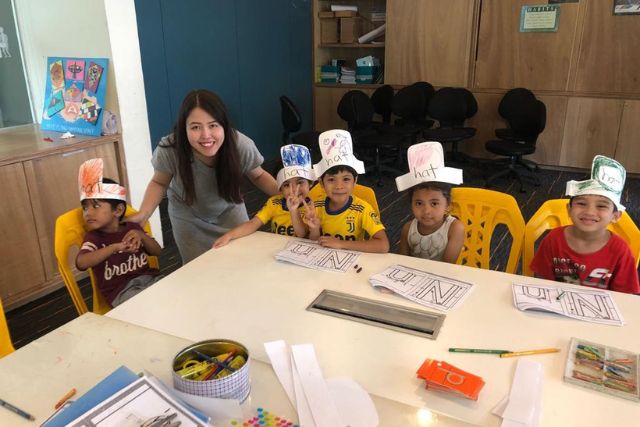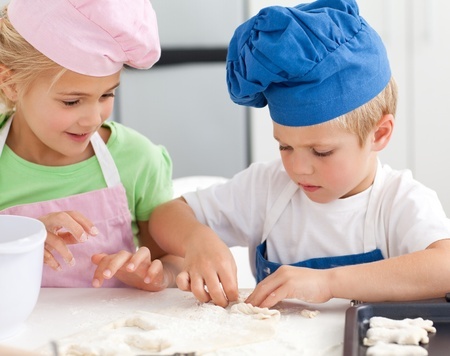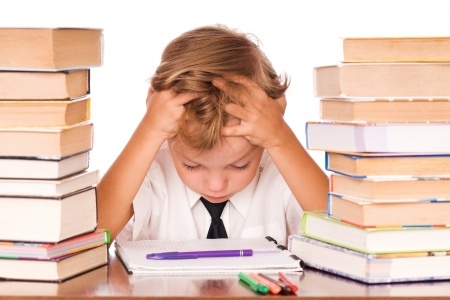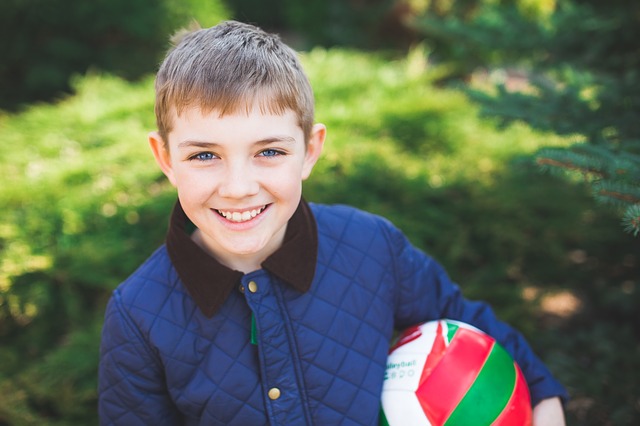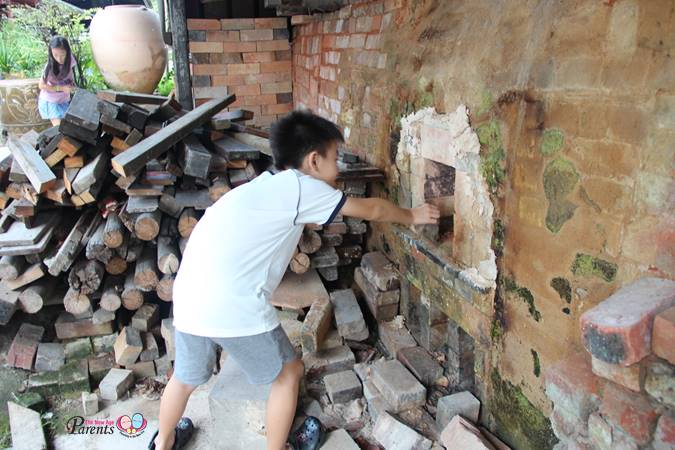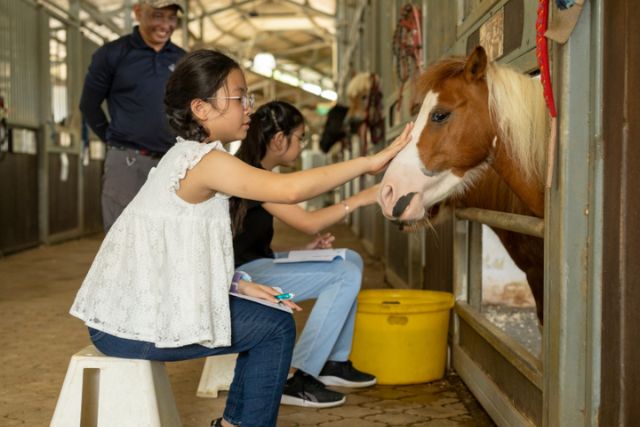The Singapore school setting is a competitive one that starts at a very young age. What are the ways parents can help their child cope with the pressure and to succeed in a competitive atmosphere? Dr. Alison Roy, Clinical Psychologist at the VA Psychology Center shares with us some tips.

Primary school children are expected to perform well on standardised assessments, in addition to their classroom work. This environment lends itself to comparison and competition across peer groups as children often become aware of how their classmates are performing.
Adults have the ability to look beyond the grades and understand that they are only an evaluation of one aspect of achievement or intelligence. However, children may become too focused on their results on assessments and may start to base their self-worth or self-esteem on the grades they achieve.
This may be especially true if other children in the environment are talking about their scores, or if teachers are putting emphasis on these assessments.
Competition at Home
This competitive atmosphere may also be apparent at home if children are comparing themselves with their siblings, or if parents emphasise heavily on achieving high scores. As a result, sibling rivalry may occur. When children feel the pressure to succeed, they may need help in understanding what competition is about and the skills needed to cope with the stress it brings.
Here are eight strategies parents can do to help children cope with the pressure.
1. “Did you give your all?”
Ask your child, “Did you study, prepare, or research enough?” If children are prepared but didn’t achieve the desired results, they can feel assured that they did their best. Help them to understand that everyone has different learning capacities, capabilities and level of intelligence. If they have given their best, let them know they have performed to their best ability on a particular task. Brainstorm with them for good study habits, to encourage them to keep trying despite the disappointment.
2. Healthy competition can be good
Help your child understand that competition can be something that motivates and drives us to do our best. Explain to them the difference between healthy competition and unhealthy competition. Healthy competition – when we use it to push ourselves further; to do more and step out of our comfort zone. Unhealthy competition – normally leaves us with a sour aftertaste and make us feel bad about ourselves.
Give children of possible scenarios in different aspects of life. One example of healthy competition is sports. Athletes need to practice consistently and learn new skills in order to keep up or be better than their opponents. Competing with other individuals drives athletes to train harder and perform better.

3. Laugh, then learn
A good life skill parents can model and teach is to first make light of failure then examine it for areas to improve and learn from. You can use an example from your own life at work or at home. You can also use real-life stories of famous personalities. For example, Walt Disney and Michael Jordan; both men failed multiple times before they became incredibly successful. How does your child view failure? Teach them to view it as an opportunity to do better next time and not as the end of the world.
4. Highlight strengths and be honest about weaknesses
Every child has an area that they are competent. Find it and once you do, don’t stop there. Find ways to let them show off their skills. Not all of life has to be academic; think about their interests, what excites them or what they love. Self-esteem is not just connected to one aspect of our life – children should not base everything on academic grades. There are also other avenues such as extracurricular activities, sports, arts and drama.
It’s important that your children get positive affirmation and encouragement from you. It’s fine to be upfront with your child if you think they are underachieving. It’s also acceptable to point out your child’s weaknesses. Talk about how their weaknesses may affect them daily, in their relationships with others, and how they can improve. If children have the opportunity to learn about their weaknesses in a safe and supportive environment, they’re often more open to accept and work on them.
5. Importance of family support
Interests vary from child to child. Find out the interests of each child and talk as a family about each individual’s strengths and interests. Your older boy might be an athletic sportsman but your younger son loves robotics. Attend each other’s events as a family and use that as a platform to teach and show your support for them. If you notice sibling rivalry, encourage your children to talk to one another. Finally, don’t compare your children in an argument and don’t let siblings compare one another in an argument either.
6. Set small achievable goals
“Where do you want to be at the end of the week, month, term or year? How do you plan to get there?” Help your child set little goals for the school year. For younger children, don’t look too far ahead. Get them to think about what they want to be when they grow up.
For older children, it’s age-appropriate to ask more questions about their goals in the future. For example, do they want to go to university or pursue higher education? What do they need to do now in order to set themselves up for future success in the field they want to be in?
Find neat and interesting ways to celebrate the little goals as a whole family. Make other family members aware of each other’s goals by displaying them in the house and once someone achieves one of the goals, celebrate together with a special family dinner or outing.
7. Emphasise other positive attributes
In addition to academic achievements, emphasise the importance of other qualities that make them good individuals. Model and teach kindness, cooperation, caring, generosity and other positive attributes with your children. These skills will make them well-rounded contributors to society. Sometimes, the best qualities in a person are the ones that are hardest to assess, but they may make the biggest impact.
8. Relaxation techniques
The more pressure a child feels to succeed, the more stressed they may become, which could, in turn, affect future performance. Make it a family activity to learn relaxation techniques together. Discuss what helps each family member to relax. Deep breathing and progressive muscle relaxation are two skills children can understand and utilise.
Relaxation techniques are helpful to use before an exam or for a new day to stay relaxed and ready to tackle anything. Practice relaxation techniques while studying for exams or preparing for an important competition. Relaxation can also be practised every day at bedtime to help children fall asleep.
Dr. Alison Roy has a doctorate in Clinical Psychology (Psy.D.) from Antioch University New England in New Hampshire, USA. Dr. Alison and her family moved abroad to Prague, Czech Republic in the Fall of 2012, where she consulted with several international schools about starting psychological services for their students from the ground up. She is now a Clinical Psychologist at the VA Psychology Center.
This was first published in Parenting with Love: Preparing your child for Primary School.
* * * * *
Like what you see here? Get parenting tips and stories straight to your inbox! Join our mailing list here.
Want to be heard 👂 and seen 👀 by over 100,000 parents in Singapore? We can help! Leave your contact here and we’ll be in touch.













